Running photography workshops and tutorials can be a fulfilling side hustle, fostering growth amongst photographers of various skill levels. To make this venture successful, it's crucial to effectively identify your target audience and structure your curriculum to cater to their specific requirements. This balance includes teaching technical skills and imparting entrepreneurial insights.
To start, find appropriate venues for your workshops. Consider local community centers, schools, or even outdoor spaces for nature photography. Once you've secured a location, you'll need to promote your workshop. A strategic approach to social media advertising can significantly increase participation. Platforms like Instagram, Facebook, or even LinkedIn can be effective in reaching potential attendees.
As you design your workshop, remember to incorporate hands-on experiences and continuous feedback. These components create a dynamic learning environment, which is key for an effective workshop. Let's delve into what specific elements contribute to an engaging and effective workshop.
Firstly, your curriculum should be structured and easy to follow. Start by teaching the basics like camera settings, lighting, and composition before diving into more complex topics like editing techniques and storytelling.
Secondly, provide ample opportunities for hands-on practice. This can be done through practical assignments or field trips. Practice helps the participants to apply their learning and gain confidence in their skills.
Lastly, ensure you provide continuous feedback, both positive and constructive. This will help your attendees identify their strengths and areas for improvement.
To sum up, running photography workshops and tutorials as a side hustle can be both financially rewarding and personally fulfilling. It not only allows you to share your expertise, but also fosters a community of photographers eager to learn and grow.
Identifying Your Target Audience
Understanding your target audience is vital for fine-tuning your side hustle – whether it's photography workshops, online tutorials, or other related services – to align with their specific needs and skill levels. A well-rounded demographic analysis forms the basis for this understanding.
By scrutinizing factors such as age, gender, educational status, and professional experience, you can glean important insights into the diverse profiles of your potential clients. For example, younger demographics might lean towards digital photography and social media-oriented services, while older groups could favor traditional methods and film photography.
Evaluating interests is another crucial aspect. By asking potential clients about their specific interests – for example, landscape, portrait, macro, or street photography – you can tailor your side hustle services accordingly. This ensures that what you offer is pertinent and engaging.
Moreover, understanding the skill levels of your audience, from novices to expert photographers, allows for the creation of tiered services that cater to varying expertise levels.
Incorporating demographic analysis and interest evaluation into your planning process not only amplifies the value of your side hustle but also cultivates a more personalized and impactful experience. By aligning your services with the exact needs and interests of your audience, you lay the groundwork for a profitable and enriching photography-related side hustle.
Choosing the Right Venue
Choosing the right venue for a photography workshop is critical, as it directly influences both the participants' experience and the quality of the photographic outcomes.
Key considerations include accessibility and convenience, ensuring that the location is easy to reach and accommodates the logistical needs of attendees.
Equally important is the atmosphere and lighting, which should enhance the creative possibilities and provide ideal conditions for both learning and capturing images.
Accessibility and Convenience
Choosing the perfect location for a side hustle like a photography workshop requires careful consideration of accessibility and convenience to ensure participants can fully take part and gain from the experience. A key factor to assess is the site's connectivity, including public transport links and parking facilities. This ensures that attendees from different regions can easily reach the venue. Furthermore, the venue should provide modern conveniences, such as reliable Wi-Fi, to support the use of online platforms and varied tutorial formats.
To paint a clearer picture, consider the following table highlighting essential aspects:
| Accessibility Factor | Description |
|---|---|
| Location | Central, well-connected by public transport |
| Parking | Ample, secure, and free or low-cost |
| Wi-Fi | High-speed, reliable for online platforms |
Further, the workshop environment should be inclusive, accommodating participants with diverse mobility needs. This could involve ensuring wheelchair accessibility, elevators, and suitable seating arrangements. The convenience of nearby facilities, such as dining options and accommodation, further enhances the overall experience of your side hustle.
Atmosphere and Lighting
The ambiance and lighting of a workspace play a crucial role in enhancing productivity and creativity in side hustle ventures like photography, affecting both the quality of the work produced and the comfort of the individuals involved.
Selecting a workspace that provides abundant natural light is crucial, as this allows individuals to experiment with different lighting conditions, from the soft morning light to the harsh midday rays. Natural light not only improves the quality of photography but also fosters a more dynamic and energetic workspace.
Furthermore, a vibrant and creative atmosphere can significantly affect one's ability to engage and innovate. Workspaces that are visually stimulating, like home studios, urban rooftops, or local parks, offer diverse settings that inspire creativity and provide a break from routine. These settings encourage individuals to think unconventionally and push the boundaries of their photographic techniques.
Paying attention to the blend of shadows, highlights, and reflections within a workspace can also help in understanding the nuances of light manipulation. By choosing a workspace that offers a range of lighting situations, one can learn how to adapt to various conditions, ultimately developing a versatile set of skills.
Consequently, a carefully chosen workspace is crucial for a successful side hustle in photography.
Crafting a Comprehensive Curriculum
How does one meticulously design a curriculum that balances practical skills with entrepreneurial savvy in side hustle-oriented photography workshops and tutorials?
An effective curriculum structure requires a harmonious blend of foundational skills and creative business strategies. Begin by segmenting the curriculum into modular lessons, each targeting specific competencies. This methodical lesson planning guarantees a progressive learning curve that builds upon each preceding module, fostering a comprehensive understanding of both technical and business aspects.
Start with practical skills such as camera settings, exposure, and composition. These core topics form the base upon which more advanced skills are built. Supplement each technical lesson with practical assignments that encourage creative application, ensuring that students not only grasp the theory but also master its practical implementation.
Incorporate entrepreneurial elements by integrating lessons on visual branding, the psychology of colors in marketing, and the interplay of light and shadow in product photography.
Encourage students to explore their unique business ideas through guided projects and critiques. This dual focus on practical skills and entrepreneurial insight cultivates a well-rounded skill set, preparing participants to excel in their photography-based side hustles.
Promoting Your Workshop
Effectively promoting your side hustle photography workshop requires a strategic blend of targeted marketing, compelling content, and leveraging various platforms to reach your ideal audience.
Begin by crafting a visually engaging campaign using high-quality imagery that reflects the essence of your workshop. Utilize social media platforms like Instagram, Facebook, and Pinterest to share behind-the-scenes content, participant testimonials, and sneak peeks of what attendees can expect. Tailor your posts with relevant hashtags and geotags to enhance visibility and engagement.
Email marketing remains a powerful tool for direct communication with potential participants. Develop a segmented email list to send personalized invitations and updates about your side hustle. Highlight key aspects of your workshop, such as unique photography techniques covered, the expertise of instructors, and early-bird discounts. Include strong calls-to-action and visually appealing graphics to capture interest.
Collaborate with influencers and photography communities to broaden your reach. Host live Q&A sessions or webinars to engage with your audience in real-time, providing a taste of the value your side hustle workshop offers. Craft compelling blog posts and articles that address common pain points in photography, subtly promoting your workshop as the solution.
Combining these strategies guarantees your side hustle attracts a dedicated and enthusiastic audience.
Preparing Necessary Equipment
When preparing for a photography workshop, ensuring you have the right camera and lens essentials is paramount to capturing high-quality images.
Equally important is the selection and setup of lighting and accessories, which can dramatically enhance the outcome of your shots.
This section will provide a detailed overview of the critical equipment necessary for a successful and productive workshop experience.
Camera and Lens Essentials
To capture exceptional photographs for your side hustle, it is crucial to meticulously prepare your camera and lens by ensuring they are clean, calibrated, and suited to the specific conditions of your shoot. Different camera types, such as DSLRs and mirrorless systems, offer varying advantages, each influencing your choice of lens focal lengths and sensor sizes, depending on what your side business requires. Full-frame sensors generally provide superior image quality and depth of field control, while crop sensors can offer extended reach for telephoto applications, ideal for product photography.
Understanding lens options is vital for your side hustle. Prime lenses, with fixed focal lengths, often deliver sharper images and faster apertures, making them ideal for low light conditions and portrait work if you're offering photography services. Conversely, zoom lenses provide versatile focal ranges, allowing for quick adjustments in dynamic shooting environments, such as event photography.
Incorporate image stabilization to mitigate camera shake, particularly for handheld shooting or longer exposures, ensuring professional results for your clients. Lens filters, such as polarizers and ND filters, can enhance image quality by controlling light and reducing reflections, thus enhancing your portfolio. Advanced autofocus systems guarantee precise subject tracking and sharpness, essential for fast-moving subjects or product shoots.
Mastering exposure settings, such as ISO, shutter speed, and aperture, is fundamental in achieving the desired depth of field and overall image aesthetics that sets your side business apart. Each element of your camera and lens setup plays a pivotal role in the final image quality, making thorough preparation indispensable for the success of your photography side hustle.
Lighting and Accessories
Optimizing image quality for your photography side hustle involves more than just a good camera and lens; it also requires a strategic approach to lighting and essential accessories. These are key components in producing professional-grade photographs.
To master this, you must understand both natural light and flash photography. Natural light, while offering a wide range of color temperatures and being cost-effective, calls for knowledge of its variableness. On the other hand, flash photography provides consistent lighting but needs proficiency in handling light intensity and direction.
Key accessories such as lighting modifiers, like softboxes and diffusers, are crucial in shaping light. These tools assist in softening harsh light, producing a more appealing effect on subjects. Reflective tools, including reflectors and whiteboards, are useful in redirecting ambient light to fill in shadows, thereby enhancing detail and depth.
A critical aspect to take note of is the understanding of color temperature for accurate color reproduction. Adjustable LED lights provide the flexibility needed to harmonize with the ambient light, ensuring color uniformity across shots. Comprehensive lighting setups for your side hustle should also factor in light stands and clamps for stability and accuracy.
It is often recommended for photographers to have portable lighting kits in their gear, providing versatility for different shooting environments. By thoughtfully integrating these elements, photographers can uplift their work, ensuring each shot aligns with professional standards.
Engaging Teaching Techniques
Mastering engaging teaching techniques in side hustle photography workshops requires a delicate equilibrium of technical proficiency, creative inspiration, and active involvement. To ensure that participants not only absorb but also retain the wealth of knowledge shared, it's vital to employ a diverse mix of teaching methods.
Here are four effective techniques:
- Interactive Activities: Incorporating hands-on tasks and group projects encourages students to apply theoretical concepts in a real-world context, fostering a deeper understanding. For example, assigning group photo shoots with specific themes can ignite creativity and stimulate peer learning, while also producing content for their personal side hustle portfolios.
- Visual Aids: Utilizing a variety of visual aids such as slideshows, infographics, and video demonstrations can simplify complex techniques. High-quality images and diagrams can illustrate concepts like composition and exposure more clearly than verbal explanations alone, assisting in the development of their photography side hustle.
- Live Demonstrations: Conducting live demonstrations of camera settings, lighting adjustments, and editing techniques can demystify the process and offer a clear, step-by-step guide for participants to follow, enhancing their ability to produce high-quality work for their side hustle.
- Feedback Sessions: Providing constructive feedback in a structured manner helps students learn from their mistakes and improve their skills. Reviewing participants' work in a group setting can also provide diverse perspectives and foster a collaborative learning environment, all of which are beneficial in successfully managing a photography side hustle.
Providing Hands-On Experience
Incorporating hands-on sessions into side hustle photography workshops is crucial for marrying the knowledge gained in theory classes with practical real-world application, ensuring attendees acquire a concrete experience that refines their skills and boosts their confidence in their side hustle activities. Hands-on tasks offer an engaging learning platform where aspiring photographers can implement their learned techniques in real-life settings, promoting a profound comprehension of camera settings, lighting, and image composition.
To cultivate comprehensive hands-on experience, side hustle workshops should feature structured activities that reflect professional situations. For example, attendees can test their portrait photography skills using a variety of lighting arrangements, or participate in landscape photography sessions at distinct times of the day to understand the intricacies of natural light.
The succeeding table presents potential hands-on tasks to include in side hustle workshops:
| Exercise Type | Scenario Description | Learning Objective |
|---|---|---|
| Portrait Photography | Studio setup with planned lighting | Mastering artificial light manipulation |
| Landscape Photography | Outdoor session during the golden hour | Understanding natural light dynamics |
| Street Photography | Urban exploration with impromptu subjects | Enhancing rapid decision-making skills |
| Macro Photography | Close-up shots of small subjects in nature | Focusing on detail and precision |
| Event Photography | Simulated event with moving subjects | Capturing dynamic scenes effectively |
Through these specific hands-on tasks, side hustle participants acquire the confidence and proficiency needed to thrive in a variety of photographic situations, ultimately expanding their creative abilities and technical aptitude.
Gathering Feedback and Improving
After conducting hands-on activities in side hustle photography workshops, gathering feedback from attendees becomes crucial in improving and refining the workshop's effectiveness. Participant surveys and feedback sessions offer valuable insights that could be used to enrich the learning experience. These methods ensure that the workshops not only meet, but exceed the expectations of attendees.
To collect constructive feedback, think about putting the following strategies into action:
- Participant Surveys: Distribute well-structured surveys at the conclusion of each side hustle photography workshop. Make sure the questions are specific and cover various aspects such as the quality of the photography content, effectiveness of the instructor, and overall satisfaction.
- Feedback Sessions: Arrange for short, informal feedback sessions immediately after each workshop. This allows for real-time, honest responses. Encourage an open conversation where participants can voice their thoughts and suggestions about the photography workshop.
- Anonymous Feedback Channels: Offer an option for anonymous feedback ensuring participants feel at ease sharing truthful opinions without worry of any backlash. This can often lead to more authentic insights about the workshop.
- Follow-Up Emails: Send follow-up emails a few days after the side hustle photography workshop. This gives participants time to reflect on their experience and provide more thoughtful feedback.
Conclusion
To summarize, the successful execution of photography workshops and tutorials hinges on meticulously identifying the target audience, selecting appropriate venues, and crafting a well-rounded curriculum.
Effective promotion through strategic social media engagement, along with the preparation of essential equipment, guarantees robust participation.
Employing engaging teaching techniques and providing hands-on experiences foster skill development.
Continuous improvement through feedback collection is imperative, establishing a dynamic and enriching environment for both creativity and technical proficiency.
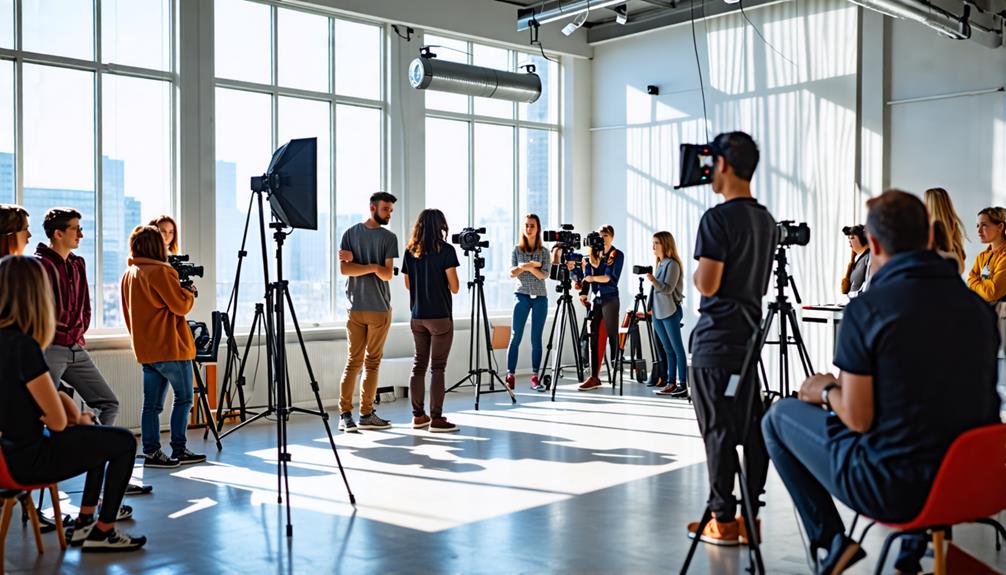





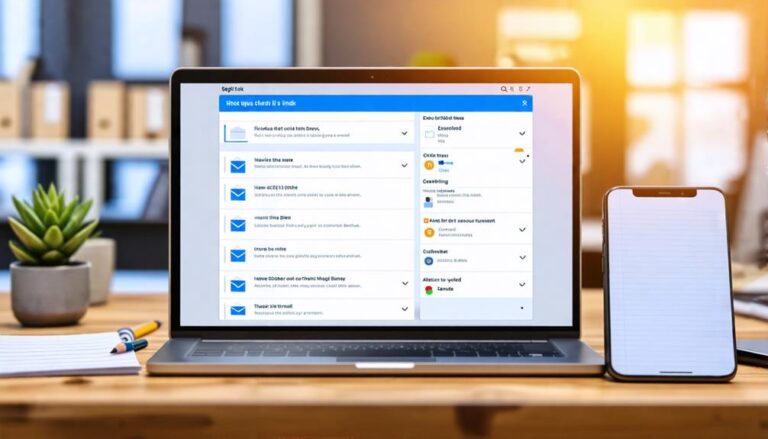





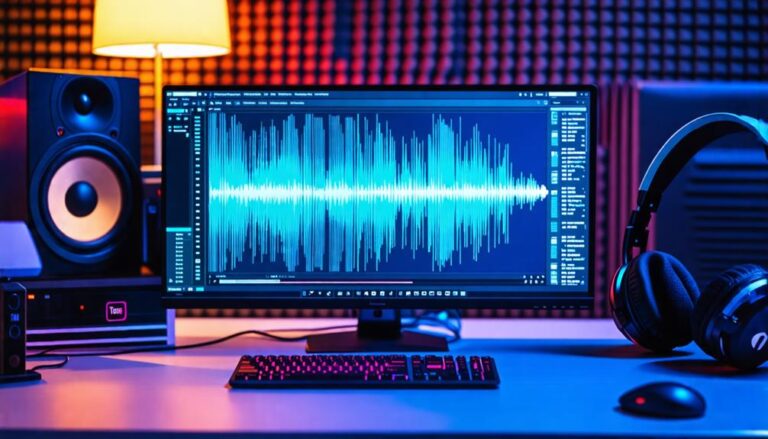








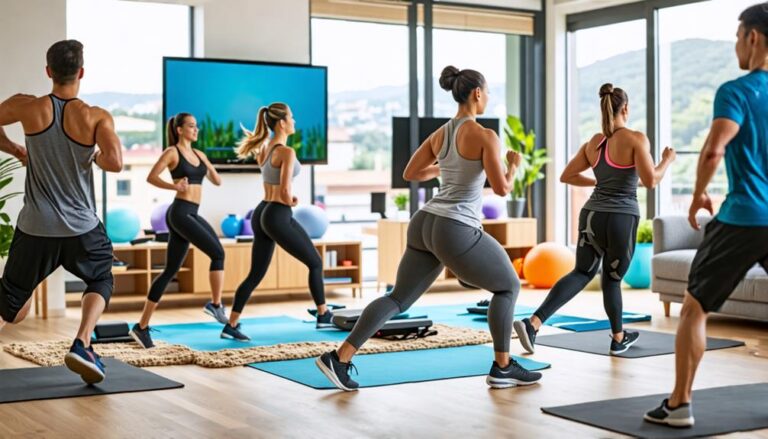

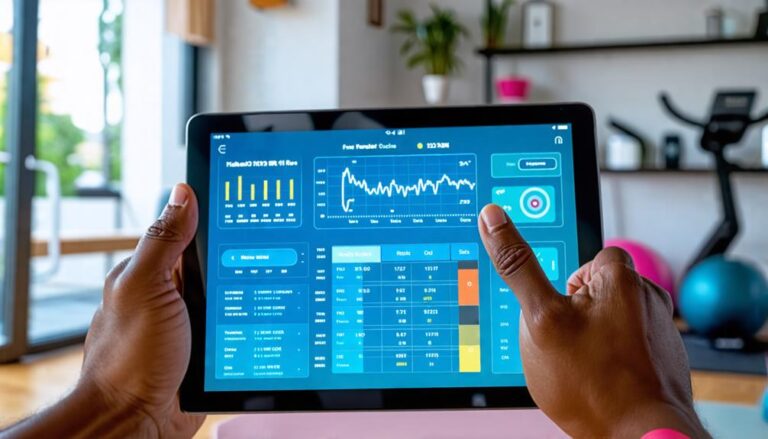

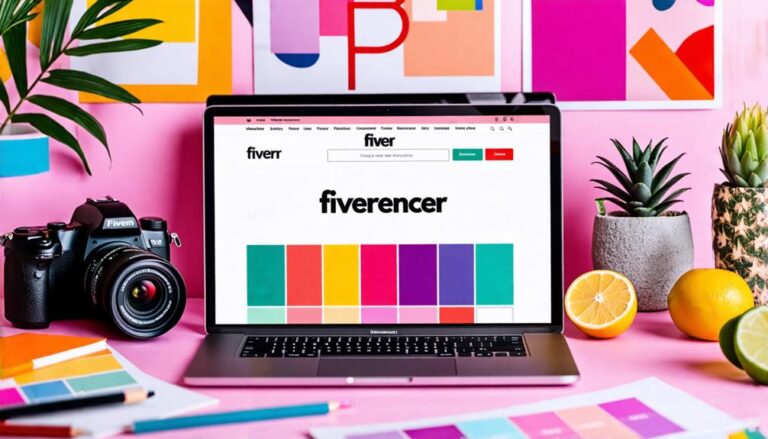










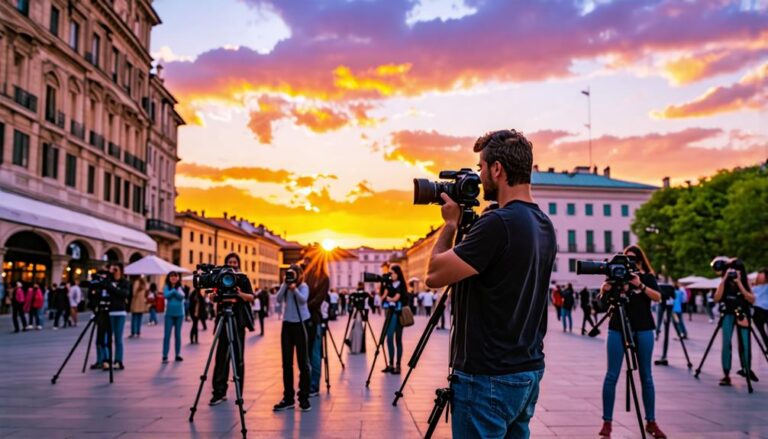












0
View comments